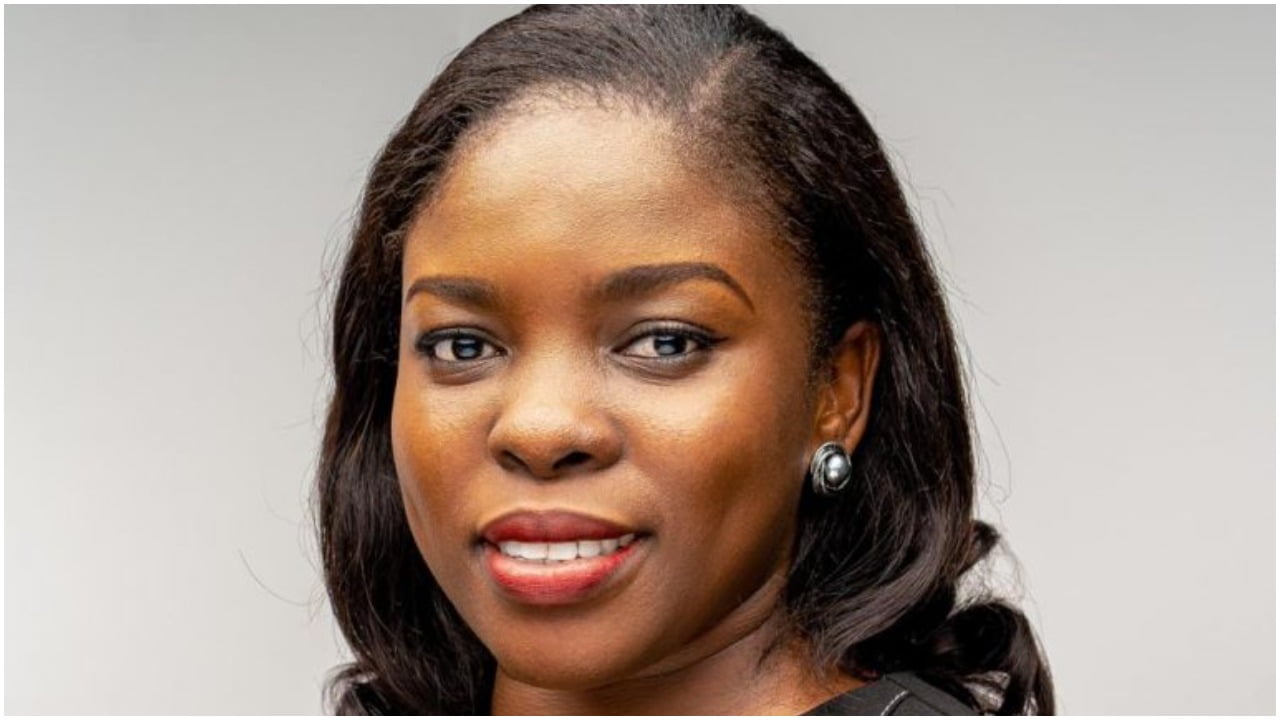News
Nigeria ripe for blue economy – Jamoh
The Director General, Nigerian Maritime Administration and Safety Agency (NIMASA), Dr Bashir Jamoh, on Tuesday said that the country was ripe for blue economy.
Jamoh said this at the University of Lagos Institute of Maritime Studies maiden Annual Lecture held in Lagos.
The lecture has the theme: ”From Crude to Blue – Nigeria’s Blue Economy: The Imperative of Maritime Domain Awareness and Good Governance”.
According to Jamoh, Nigeria is already into blue economy and what needed to be done is to see to its sustainability.
“The Cabotage Vessel Financing Fund (CVFF), using ferries, ship repairs and building are all blue economy, and there are many others. We are into it but what is left now, is how to structure it.
“The amount of value that the blue economy provide is over 2.5 trillion dollars. So what portion, how much does Nigeria intend to strike from this amount? This depends on our own seriousness,” he said.
Jamoh pointed out that Nigeria needed to tap into the 350 million jobs that abound in the blue economy.
“On the issue of increasing jobs, we are about to commence the disbursement of the Cabotage Vessel Financing Fund. The total exposure of the CVFF is within the region of 350 million dollars and this amount is 50 per cent of NIMASA control.
“By the guidelines, the primary lending institutions will provide 35 per cent and shipowners will have to provide 15 per cent, making 50 per cent in total.
“If we have 350 million as 50 per cent contribution to NIMASA, then we are accepting another 350 million from the primary lending institutions and that means 700 million dollars.
“With 750 million dollars, we are set to give maximum of 25 million dollars each to shipowners to purchase ship which will directly or indirectly provide jobs,” he said.
Jamoh added that presently, the Nigerian National Petroleum Corporation (NNPC) had expressed interest in taking part in the funding of ships that would be acquired by Nigerian shipowners using the soon-to-be disbursed CVFF.
He said that to achieve this, the NNPC offered to provide nine per cent funding that would enable shipowners to access the CVFF and buy new ships.
“The NNPC agreed to offer them nine per cent, so that the shipowners will only have to source for only six per cent.
“NNPC said it needs ships to lift Nigerian crude and that it will give Nigerian shipowners the specifications of ships to buy. It will also give them nine per cent out of the 15 per cent of the funding that was supposed to be provided by the shipowner.
“They said they will take over the ship and provide the cargo until it recovers the amount invested in the acquisition of the ships,” Jamoh said.
He listed some of the assets the country had that would ensure the utilisation of the blue economy to include 853 km coastal line, 8573 kn inland waterways, six port complexes and 21 oil terminals.
It also include more than 10 jetties, 200 nautical miles of exclusive zones, 200 million population; all consumers, and others.
He noted that the greatest threat to Nigeria blue economy was sea blindness, adding that there was need for more engagements and education on what the blue economy was all about.
“So, many people do not know what constitute the blue economy and ways to harness it, but that can only be done through this kind of forum.
“Areas that should be invested in and that will help the economy are: marine transportation, fisheries, aquaculture, renewal energy, tourism, climate change, waste management, port development and logistics, shipping and others,” he said.
Mrs Dere Awosika, the chairman of the occasion, noted that the blue economy hold many lucrative opportunities for Nigerian, adding that the financial institutions had to do a lot of work to ensure that the right finance was made available to develop the industry.
Represented by Ms Iyabode Soji-Okusany, Head Of Corporate Banking, Access Bank, said that Nigeria could not continue to depend on crude as it truly needed to turn blue, while everyone should work collectively to do the right thing.
Prof. Folasade Ogunsola, Vice Chancellor, University of Lagos, noted that the idea of having an annual lecture at the Institute of Maritime Studies was in accordance with the tradition and customs of knowledge-based institutions was muted in 2021.
“It was thought that such an occasion should be one that will bring all the captains of the Maritime industry together under one roof on a topic of major national interest.
“The institute was established in 2013 by the University of Lagos in conjunction with NIMASA to address the chronic shortage of personnel in the Nigerian maritime space,” she said.
News
Meet silent achiever, Miriam Olusanya piloting GTB to increased profitability


Miriam Olusanya made history in July 2021 as the first female Managing Director of Guaranty Trust Bank (GTB) one of Nigeria’s most successful banks.
With over 24 million customers, Guaranty Trust Bank is a leading African Bank that offers Online/Internet Banking, Retail Banking, Corporate Banking, Investment Banking and Asset management.
Despite her academic background in Pharmacy from the University of Ibadan and an MBA from the University of Liverpool, Olusanya has excelled in her role at GTBank.
Her performance has been instrumental in positioning the company as a leading financial holding company and enhancing its strategic capabilities in navigating operational challenges.
Recently, the Bank recorded the largest ever Profit before tax (PAT) in Nigeria’s Banking industry history.
Olusanya is an industrious and beautiful woman with the strength of a warrior and the ability to work magic with her skills. Her outstanding performance has significantly contributed to the growth of the financial institution and elevated the company’s standing within the financial industry.
Olusanya’s accomplishments have been acknowledged by Segun Agbaje, the Group CEO of Guaranty Trust Holding Company Plc (GTCO PLC), recognising her exceptional leadership. Her impressive track record at GT Group reflects her exceptional qualities as a business executive.
Under her leadership, Olusanya has demonstrated a commitment to promoting enterprise across the African continent and supporting indigenous small businesses.
For her excellent performance since assuming office, Miriam Olusanya is our Thriving Woman of the Week.
News
Lagos Agriculture sector contributes N7trn to State’s GDP — Commissioner


By Sodiq Adelakun
The Lagos State Government has revealed that the agriculture sector contributed N7 trillion to the state’s Gross Domestic Product (GDP) in 2024.
This disclosure was made by the State Commissioner for Agriculture, Abisola Olusanya, during the ongoing 2024 Ministerial Press Briefing at Alausa Ikeja, commemorating the first year of Governor Babajide Sanwo-Olu and his deputy, Kadri Hamzat’s second term in office.
In her words, Olusanya said, “In Nigeria, Agriculture contributes 25 percent to the GDP. But in Lagos, Agriculture encompasses a lot up to food production, so agriculture contributes N7 trillion in the last couple of years to the Lagos economy.
“This is to tell you that we have the potential, there is opportunity. We will not relent in terms of making it better,” she added.
In addition, the commissioner announced that the state government is collaborating with other states to ensure a steady supply of 200,000 tonnes of paddy required at the Imota Rice Mill.
She also revealed that at least 10,000 heads of cattle are slaughtered daily in the state.
However, she noted that there are significant data gaps and loopholes in the red meat production chain, which are often exploited by individuals. To address this, the state plans to utilise the logistics hub in Epe to improve data collection and plug the loopholes.
“The Lagos Rice Mill is 2 lines of 16MTPH integrated mill sited on 8.5 hectares of land at Imota. The rice mill has a capacity to produce 2.4 million bags of 50 kg bags of Rice yearly using 200,000 Metric tonnes of paddy annually.
“The Mill is part of the government’s commitment towards ensuring food security in the State which is a key component of the T.H.E.M.E.S + Development Agenda of Mr. Governor to make Lagos State a 21st Century economy,” She added.
Also speaking, Dr. Oluwarotimi Fashola, Special Adviser on Agriculture, reiterated the state government’s partnership with other states to ensure a steady supply of paddy.
“Because of the size of rice needed, Mr Governor signed an MOU with Niger state being the largest producer of paddy in the country.
“The Imota rice mill needed 200,000 tonnes of paddy. The partnership with other states is to ensure sustainability of production. We extend our hand of fellowship to all the South West states,” He added.
News
Nigeria, France strengthen global migration partnership


The Nigerian government is taking proactive steps to prevent illegal migration, by deploying cutting-edge technology to monitor and manage its land, maritime, and air borders.
The Minister of Interior, Dr. Olubunmi Tunji-Ojo, who stated this during a courtesy visit by the French Government led by the Ambassador in charge of Migration at the Ministry for Europe and Foreign Affairs, His Excellency Christophe Léonzi, stressed Nigeria’s commitment to curbing illegal migration while fostering cooperation with global partners.
Acknowledging migration as a natural phenomenon, Dr. Tunji-Ojo emphasised the government’s stance against illegal migration, expressing Nigeria’s willingness to support bilateral efforts to combat this challenge.
“An African problem is more of a European problem than an American or Asian problem because of our proximity. It is easier for people to find their way to Spain, France, Italy or the United Kingdom than to get into America or China. So, it means that the more we invest our energy and efforts into proactive strategies, the better it is for us,” the Minister said.
He highlighted the dynamic nature of illegal migration, stressing the need for continuous dialogue and proactive measures to stay ahead of traffickers’ evolving tactics.
The Minister further stated that the Ministry is streamlining the Nigerian visa application process on the basis of reciprocity, with priority on automation and a seamless access to INTERPOL data, to strengthen border control and security measures.
On its part, the French Government led by the Ambassador in charge of Migration at the Ministry for Europe and Foreign Affairs, His Excellency Christophe Léonzi, said the purpose of the visit was to foster cooperation between both countries.
Earlier before the engagement with the French delegation, the Minister of Interior had a closed meeting with the Technical Committee on the Enhancement of Security in the North led by Major General A.T. Jibrin (rtd).
Acknowledging progress since President Bola Ahmed Tinubu assumed office on May 29th, the Minister noted: “Yes, we are not where we want to be, but of course, we are not where we don’t want to be or used to be. Since May 29th when President Bola Ahmed Tinubu came on board, there has been a visible difference in terms of the security situation.”
The Permanent Secretary Dr. Aishetu Gogo Ndayako, Comptroller General of the Nigeria Immigration Service, Kemi Nana Nandap, and other high-ranking officials of the Ministry were present at both meetings.
-
capital market2 years ago
Rt.briscoe, FBNH, Others halts negative performance of stock market
-
Finance3 months ago
Court orders Sen. Victor Umeh to repay N136m bank debt to AMCON
-



 Abuja Update2 months ago
Abuja Update2 months agoUNDP, FG partnership needed to achieve inclusion, equity- Minister
-
Abuja Update1 month ago
Banks drive stock market performance with N147bn gain
-



 Health3 weeks ago
Health3 weeks agoCapacity training will reduce migration of health workers- NPHCDA
-



 Business2 weeks ago
Business2 weeks agoTingo Group unveils Tingo Electric, Tingo Cola drink at Lagos launch
-



 Infotech1 month ago
Infotech1 month agoWorld Backup Day: NITDA urges Nigerians to ensure backup of data
-
News4 months ago
Oil thieves sponsoring malicious media campaign against Navy – Spokesman










